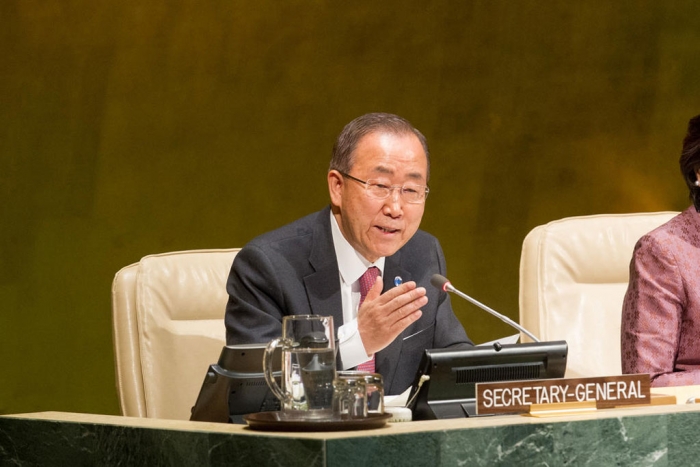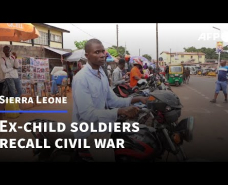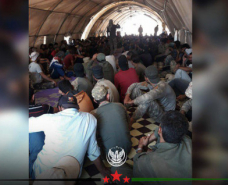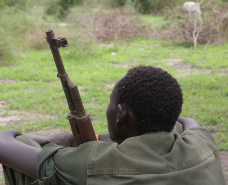More than 15 million children directly affected by violence in 2014

During a Security Council meeting on children in armed conflicts, UN officials urged today protection for the war's youngest victims.
Secretary-General Ban Ki-moon told the UN 15-member body that "increasingly, children are snatched from a normal life of school and family, abducted by armed groups and thrown into a life of violence and horror."
He added "from north-eastern Nigeria, to Iraq, from South Sudan to Syria, we have witnessed a wave of such abductions used to terrorize and humiliate entire communities."
He also noted that last year was considered one of the worst ever for children in areas affected by conflict, with up to 15 million children directly affected by the violence.
Ban observed that since he last addressed the Council on the issue in 2014, hundreds of thousands more children had been confronted with the emergence or intensification of conflict, while UN agencies on the ground were verifying more and more cases of child abductions by armed groups.
He underscored "our agencies on the ground tell us that they are verifying more and more cases of child abductions. This is why I urge Member States to work with us to strengthen our prevention and response mechanisms."
Overall, an estimated 230 million children reside in countries and areas where armed groups are fighting and up to 15 million children were impacted by the violence.
Also addressing the Council, Leila Zerrougui, Special Representative of the Secretary-General for Children and Armed Conflict, lamented the growing challenges facing the international community despite the consensus and our combined efforts to spare children the horrors of war.
She noted that out of the 59 parties documented as having committed violations against children, 51 were non-State actors. To that point, she continued, it remained necessary to enter into "constructive dialogue" with the armed groups, in order to dissuade them from continuing in their destructive practices.
The Special Representative said "access and communication to these groups is not always an easy matter. When it comes to my mandate, I try to promote an approach that takes into account the context and which uses all possibilities for engagement."
Echoing her point, Yoka Brandt, UNICEF Deputy Executive Director, emphasized that voicing outrage was not enough but that the international community's words must be matched by action to prevent violations of child rights.
Brandt admitted that there had been some successes as a number of child soldiers in South Sudan were undergoing demobilization. She underscored, however, that being released was only a first step as many children faced struggles when they returned home, such as stigmatization and psychological stress.
She also said "consider the more than 140 Kurdish children, abducted by ISIL in Aleppo last May, and held for four months. Now released, they tell of horrifying abuse. Beatings with water pipes and electrical cables. Being forced to watch violent videos of battles, beating and executions. Starvation. Yes, these children have experienced the worst of humanity."
Among those addressing the meeting was Junior Nzita Nzuami, who at the age of 12 was abducted and forced to fight as a child soldier with rebel forces in the Democratic Republic of the Congo (DRC).
He recounted moments of horror during his three years of fighting. He said "we did all that was asked to of us, violating the rules of international humanitarian law. We transported cases of ammunition. We walked thousands of kilometers with just one belief: we must fire on everything that moves, off the fear that we will be fired upon. Innocent lives were destroyed for no reason."
He underlined "please allow me to reiterate my apologies for all of the harm that we caused to our fellow human beings."
Junior now dedicates his life to helping underprivileged children in Kinshasa, and his goal is to build a better future for them, and a better future for his country.
Source: CIHAN – New York
Photo: UN Photo/Loey Felipe
Countering Military Recruitment

WRI's new booklet, Countering Military Recruitment: Learning the lessons of counter-recruitment campaigns internationally, is out now. The booklet includes examples of campaigning against youth militarisation across different countries with the contribution of grassroot activists.
You can order a paperback version here.








